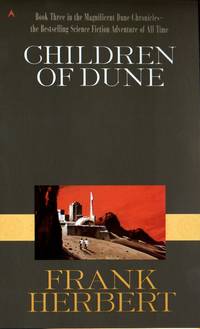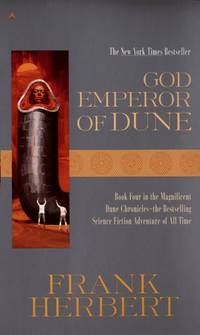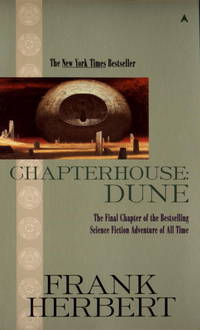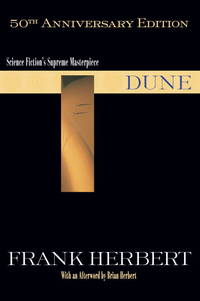As an author, Herbert was both critically acclaimed and a worldwide commercial success.
Frank Herbert was born in Tacoma, Washington. He knew from an early age that he wanted to be a writer, and in 1939 he lied about his age in order to get his first newspaper job on the Glendale Star.
There was a temporary hiatus to his writing career as he served in the U.S. Navy during World War II. He married Flora Parkinson in 1941 but later divorced her in 1945 after their daughter was born.
After the war, he attended the University of Washington, where he met Beverly Ann Stuart at a creative writing class in 1946. At the time they were the only students in the class who had as yet sold any work for publication. Frank had sold two pulp adventure stories to magazines, and Beverly had sold a story to Modern Romance magazine. They married in Seattle on June 20, 1946. Their first son, Brian Herbert, was born in 1947. Frank Herbert did not graduate from college, according to Brian, because he only wanted to study what interested him and so didn't complete the required courses.
After college he returned to journalism and worked at the Seattle Star and the Oregon Statesman; he was also a writer and editor for the San Francisco Examiner's California Living magazine for a decade.
Herbert began reading science fiction in the forties, and in the fifties decided that this was the type of fiction he wanted to write. In the 1950s his short stories appeared among others in Startling Stories. During the next decade, he was an infrequent contributor to science fiction magazines, producing fewer than 20 short stories.
Herbert relates in an interview with McNeilly that the novel
Dune originated when he was supposed to do an article on sand dunes in Florence, Oregon, but he got too involved in it and ended up with reams more raw material than he would ever need for a magazine article. Indeed he never actually handed in this article, but it served as the seed for the ideas that created Dune.
Herbert started his career as a novelist with the publishing of
The Dragon In the Sea in 1955, where he used the environment of a 21st-century submarine as a way to explore sanity and madness. The book predicted worldwide conflicts over oil consumption and production. It was a critical success, but it was not a major commercial one.
He began researching Dune in 1959 and was able to devote himself more wholeheartedly to his writing career because his wife returned to work full time as an advertising writer for department stores, becoming the main breadwinner during the sixties.
After six years of research and writing, Dune was completed by 1965. But Dune was rejected by more than twenty publishers before one finally accepted it. One publisher prophetically wrote back "I might be making the mistake of the decade, but...," before rejecting the manuscript. But publisher number twenty made a wiser choice, Herbert received a $7,500 advance, and Dune was soon a critical success. It won the Nebula Award for Best Novel in 1965 and shared the Hugo Award in 1966. Dune was the first ecological science fiction novel, containing a multitude of big, inter-relating themes and multiple character viewpoints, a method that ran through all Herbert's mature work.
The book was not an instant bestseller. By 1968 Herbert had made only $20,000 from it and was not yet able to take up full-time writing. However, the publication of Dune did open doors for him. He was the Seattle Post-Intelligencer's education writer from 1969 to 1972 and lecturer in general and interdisciplinary studies at the University of Washington (1970-2). He worked in Vietnam and Pakistan as a social and ecological consultant in 1972. Herbert was only able to take up full-time writing in 1972. In 1973 he was director-photographer of the television show The Tillers.
In the 1970s and 1980s, Herbert finally enjoyed commercial success as an author. He lived between Hawaii and Washington State. During this time he wrote numerous books and pushed ecological and philosophical ideas. He continued his Dune saga, following it with
The Ascension Factor.
But his change in fortune was shaded by tragedy. In 1974, Beverly underwent an operation for cancer which gave her gave her ten more years of life, but adversely affected her health. She died on February 7, 1984. In his afterword to
Chapterhouse Dune, Frank writes a moving elegy for his wife.
1984 was a tumultuous year in Herbert's life. In the same year his wife tragically died, his career ironically took off as well with the release of David Lynch's film version of Dune. Despite high expectations, big-budget production design, and an A-list cast, the movie drew mostly poor reviews in the United States. However, despite a disappointing response in the USA, the film was a critical and commercial success in Europe and Japan. Also in 1984 Herbert published the fifth book in the Dune saga,
Heretics Of Dune, which many readers believe to be as good as Dune itself. Finally, following the passing away of Beverly, Frank married Theresa Shackelford later in the year.
Beverly apparently made Frank promise to finish the sixth book in the Dune sequence. In 1986, Herbert published Chapterhouse: Dune, which tied up many of the saga's story threads. This was to be Herbert's final single work - he died of pancreatic cancer on February 11, 1986, in Madison, Wisconsin, at the age of 65.
Frank Herbert left a rich posthumous legacy for his readers. He left behind notes for both the history of the Dune universe before the events of Dune and the novel he had planned to follow Chapterhouse: Dune. In recent years, Brian Herbert (Frank's son) and Kevin J. Anderson, have used those notes to write a very successful series of novels based on the pre-Dune materials and are preparing to write the post-Chapterhouse novel which fans refer to as Dune 7.
The film version of Dune is now a cult classic and has seen many more adaptations, including a much-anticipated release of a feature film meant to be released in 2020 but delayed by COVID-19.
































